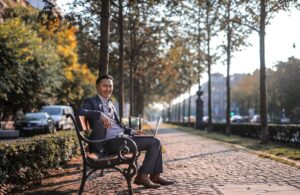If you’ve been under a rock, our Prime Minister hosted a multi-faith dinner marking the end of the day’s fast for Ramadan to ask leaders of community to band together in the face of terrorist attacks. Sheikh Shady Al-Suleiman is the person behind previous inflammatory comment such as dubbing homosexuality an evil act. The inclusion of the Sheikh on the guest list caused uproar with many saying that he should not have been invited. And in actual fact, Malcolm Turnbull has now stated he regrets inviting him.
Now to be absolutely clear, I condemn any act of terrorism. I believe in democratic philosophy, and believe strongly that every individual has the fundamental and irrevocable right to make their choices about how they live their lives, provided they don’t deliberately or knowingly cause harm. However, when holding a dinner specifically about unity and inclusion, it strikes me as hypocritical to be suggesting that some people be excluded because you don’t agree with them.
Knowledge is power, and we can only grow as people and a society through considering a wide variety of views. Yes, sometimes it will be uncomfortable. Yes, sometimes it will be heated. However, considering opposing points of view usually serves to clarify our own, and you will even often discover similarities you didn’t know existed.
Specifically on the issue of homosexuality, other institutions have and continue to speak out in similar terms about the issue. The Catholic Church for example widely condemned homosexuals quite recently and largely refused to alter either its doctrine or public narrative to accommodate a more inclusive view. So then, would people be outraged if Malcolm Turnbull invited the Pope or a Cardinal to dinner?
What concerns me most about this is how quickly a political issue showed up a deeper societal issue. We so quickly seek to exclude those who we brand as ‘other’, who we disagree with or who threaten the world as we know it. Whilst this is in many ways a natural response, surely the ethical response is to note the fear of difference, and then embrace it? Instead we segregate into our groups and whisper about how wrong the others are.
And I have to say, I certainly don’t agree with everything he has had to say of late, but Malcolm Turnbull was right. To fight terrorism, or any form of extremism, we must be a united society. The degree to which this incident has shown us to be divided surely indicates that terrorism has already at least partly won. I believe the best way to fight the growing threat of extremism is to band together, see that we are more alike than we are different, and celebrate the rich cultural tapestry that is Australia.

